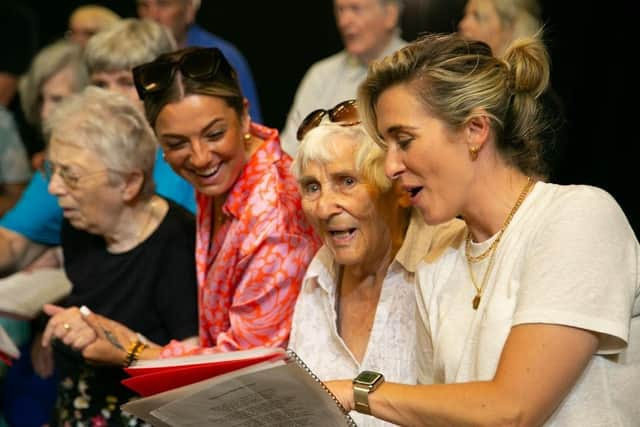Grants available for 'dementia choirs' to help transform lives through music
and live on Freeview channel 276
At 9am on 13th February 13, 2023, grants of £1,000 will be made available to 100 community choirs and singing groups across the UK, to help bring the life-changing power of music to people living with dementia and their carers.
The new fund, established by The National Academy for Social Prescribing [NASP] and The Utley Foundation, is a response to last year’s Power of Music report, which called for investment in music programmes for health and wellbeing, among other recommendations.
Advertisement
Hide AdAdvertisement
Hide AdIt is also inspired by the ‘Our Dementia Choir’ documentary, which features the creation and development of a choir in Nottingham. Presented by Vicky McClure – whose grandmother had dementia - the programme made an appeal for more funding to be made available for other dementia choirs and singing groups, as it demonstrated the transformational difference singing makes in its participants’ lives.


Through the £100,000 fund, community choirs and singing groups will be able to apply for small grants to cover the travel, room hire, refreshment or administration costs that can often get in the way of making choirs and singing groups a viable option for those with dementia.
Music therapy is a proven solution to this increasing problem, with research showing that it is the best type of therapy for reducing the behavioural and psychological symptoms of dementia. Not only does it improve quality of life, it can also reduce agitation and the need for medication in 67% of people with dementia.